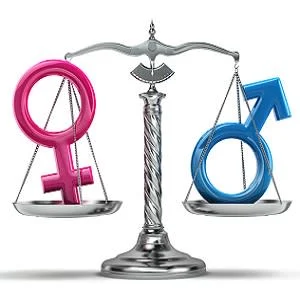A new analysis suggests that women are under-represented in landmark heart failure clinical trials. In the PARADIGM-HF trial, the use of sacubitril-valsartan reduced heart failure hospitalisations as well as cardiovascular death by 20% compared to enalapril. However, only 21% of the study participants were women. In the inclusion criteria for the trial, only 16% of eligible patients were women. This was because many women failed to meet the target dose requirement of angiotensin converting enzyme (ACE) inhibitors or angiotensin receptor blockers. The PARADIGM-HF trial is just one of many clinical trials that under-represent women.
Overall, there is a general trend of under-representation of women in landmark heart failure trials. Only about 20 to 25% of the total participants are female compared to a prevalence of 30 to 40% women in real-life populations of heart failure patients. In most cases, the recommended target doses in these trials are based on men. This results in a knowledge gap as to how to treat women with heart failure.
This under-representation needs to be addressed and efforts should be made to enrol representative proportions of women in clinical trials. In this analysis, sex differences in a real-world heart failure population was examined in order to investigate the impact of gender on achieved doses of heart failure medications. 1924 patients were included in the analysis, out of which 43% were women. 30% of these women had reduced ejection fraction. These women were also significantly older, had lower body weight, lower creatinine clearance and less coronary artery disease. They thus attained lower doses of heart failure medications.
The analysis showed that gender was not associated with achieved target dose ACE inhibitors/angiotensin receptor blockers, beta-blockers, or mineralocorticoid receptor antagonists. But age, renal function, and body weight were significantly associated with the doses achieved. Therefore, on the surface, it may seem that there is an age bias (since women with heart failure are older), and not a gender bias in heart failure medications. This could also explain why major heart failure studies include a low proportion of women. But findings from this analysis suggest that an age bias in heart failure equals a gender bias. It is thus recommended that more individualised doses should be given to women, as well as old and frail patients with heart failure, and efforts should be made to have equal representation of women in landmark heart failure trials.
Source: European Heart Journal
Image Credit: iStock
References:
Norberg H (2019) Clinical trial enrolment favours men: Fewer women meet eligibility criteria for trials of heart failure medication is discussed by Helena Norberg from Sweden. European Heart Journal. doi.org/10.1093/eurheartj/ehz146
Latest Articles
heart failure, women, clinical trials, landmark trials, underrepresentation of women
Most landmark heart failure trials have an under-representation of women. This is an urgent problem that needs to be addressed and efforts should be made to enrol representative proportions of women in clinical trials.










